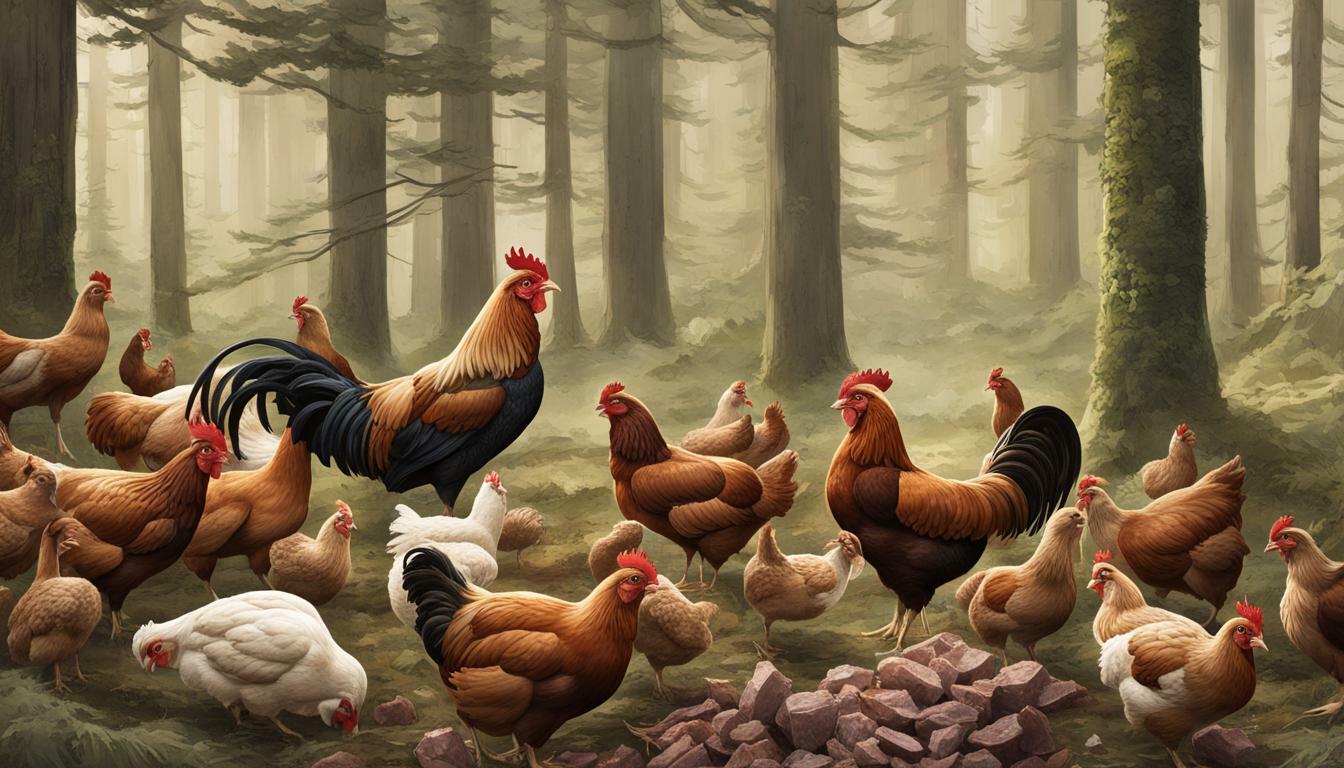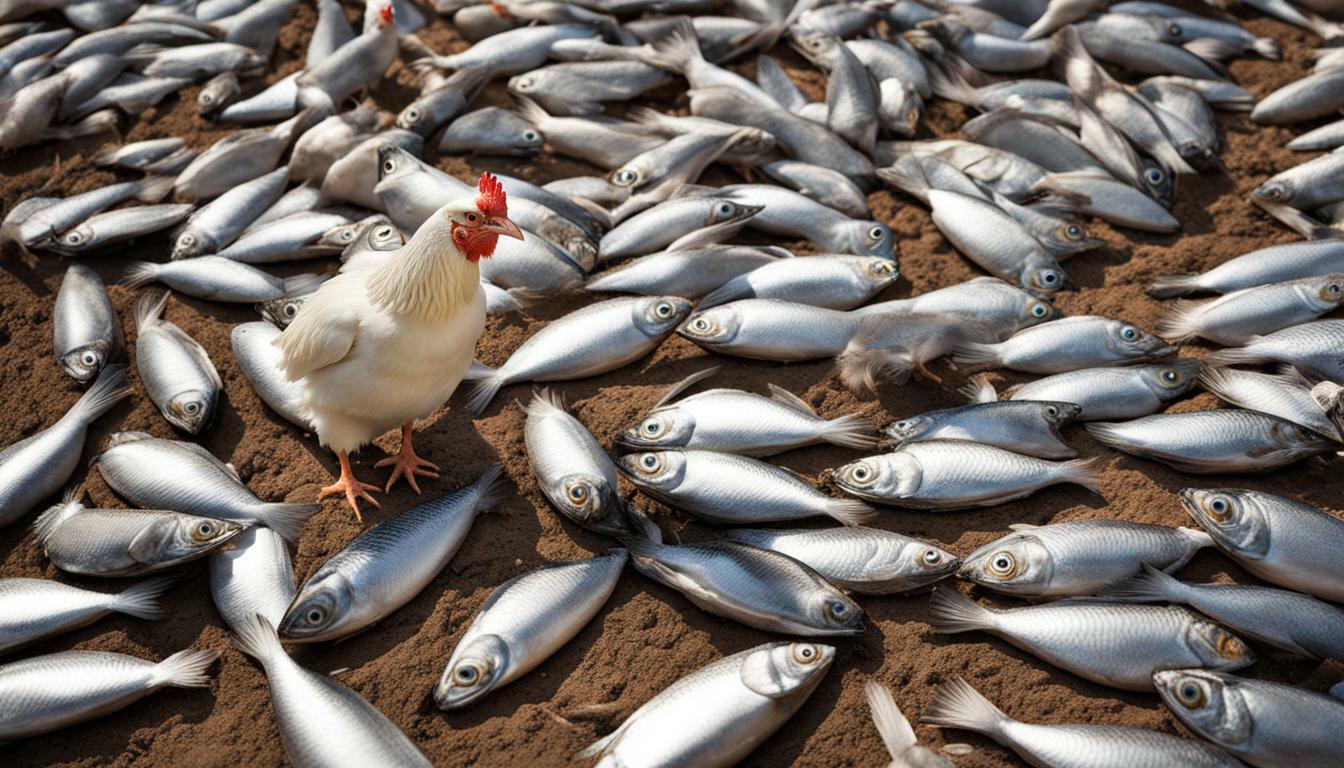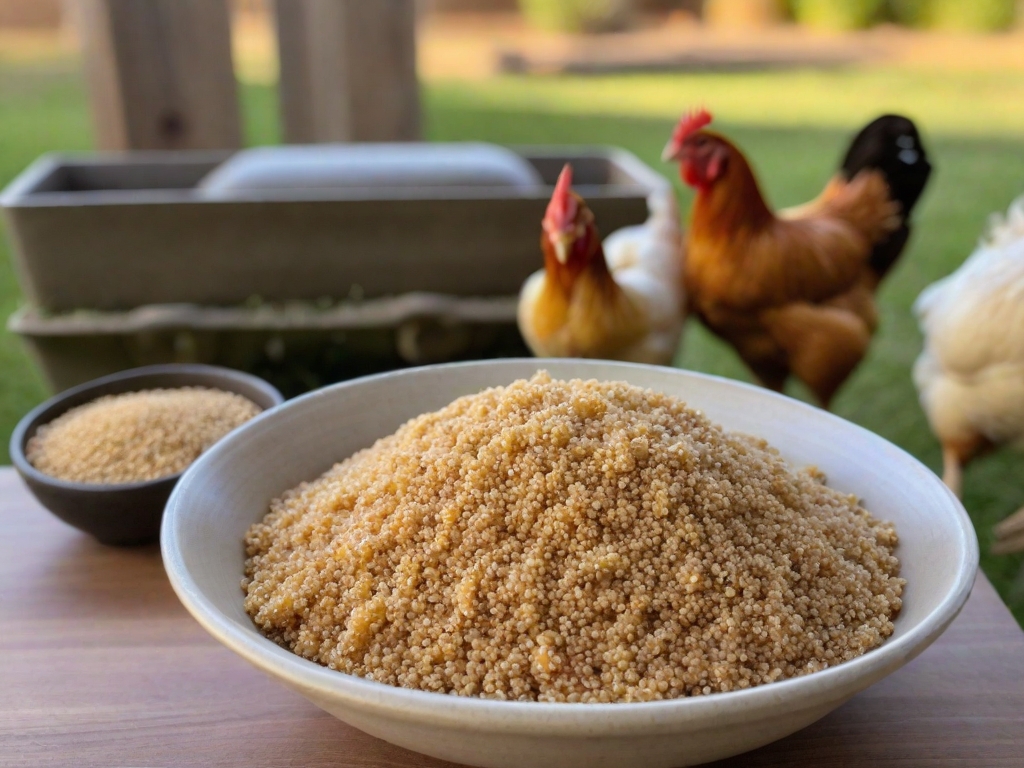Can Chickens Eat Deer Meat? Uncovering the Facts And Risks

Table of content:
- Feeding Deer Meat to Chickens
- Nutritional Profile of Deer Meat for Chickens
- Is Venison Safe for Chickens to Eat?
- How Much Deer Meat Should Chickens Eat?
- Should You Cook Venison Before Feeding Chickens?
- Can You Feed Chickens Deer Bones and Organs?
- Tips for Preparing and Serving Venison to Your Flock
- Are There Any Concerns or Precautions With Feeding Venison?
- Do Chickens Like the Taste of Deer Meat?
- Is Venison a Healthy Treat for Chickens?
- Final Thoughts
Chickens can eat deer meat, also known as venison, as part of a balanced diet. Deer meat offers nutritional benefits for chickens but also requires some precautions when feeding it. This comprehensive guide will examine if deer meat is safe for chickens, the pros and cons, and best practices for including venison in your flock’s diet.
Feeding Deer Meat to Chickens
Deer meat comes from wild deer that are hunted or raised on farms specifically for meat production. The most common deer species used for venison are red deer, fallow deer, elk, caribou, and white-tailed deer.
Venison is leaner and higher in protein than beef or poultry. It contains iron, zinc, selenium, vitamin B12, and other nutrients beneficial to chickens. Many chicken owners report their birds enjoy eating venison as an occasional treat.
However, deer meat also has downsides. Deer can transmit diseases to chickens like tuberculosis and Lyme disease. Venison is also extremely lean and does not provide enough fat in a chicken’s diet. Furthermore, wild deer meat may contain lead fragments from bullets or shotgun pellets.
Overall, venison can be part of a varied diet for chickens but should not become their main protein source. Only feed chickens venison from healthy deer and always in moderation. Take proper precautions when introducing deer meat to avoid potential health issues.
Nutritional Profile of Deer Meat for Chickens
The most significant advantage of venison is its rich protein content. Deer meat contains around 22-26% protein, higher than chicken, turkey, or beef. Protein provides essential amino acids that promote growth, egg production, and overall health in chickens.
Along with protein, venison contains important vitamins and minerals:
- Iron – Supports blood health and immunity.
- Zinc – Boosts feather and egg quality.
- Selenium – Antioxidant for immune health.
- Phosphorus and calcium – Critical for bone strength.
- B Vitamins (B12, B6, niacin, riboflavin) – Aid metabolism and egg production.
Deer meat is also low in fat, with cuts containing only 1-3% fat. This makes venison much lower in calories and cholesterol compared to beef or poultry. However, the minimal fat means venison should never be the sole protein source for chickens. They need adequate fat from other foods for energy.
Overall, venison offers a nutritionally dense, lean protein for chickens. Fed occasionally, provides quality amino acids, vitamins, and minerals that support chicken health and productivity.
Is Venison Safe for Chickens to Eat?
Deer meat is safe for chickens in moderation when properly sourced and prepared. However, there are also risks to be aware of when feeding venison:
Diseases – Deer can transmit dangerous diseases to chickens like tuberculosis, Lyme disease, CWD, and avian influenza. Only feed chickens venison from licensed, inspected sources to reduce this risk. Avoid wild game meat.
Parasites – Deer meat may contain parasites like Toxoplasma gondii or liver flukes. Proper cooking destroys most parasites.
Lead fragments – Bullet fragments from wild deer may contaminate the meat. Use venison from deer farms or carefully inspect meat from wild hunts.
Choking/crop impaction – Chickens can choke on or be unable to pass large chunks of deer meat. Cut into bite-size pieces.
Nutritional imbalances – Too much venison can lead to deficiencies from its low fat and calcium levels. Feed as a treat or part of a varied diet.
Following basic precautions will help make venison safe for your flock. Only use reputable, disease-free sources of deer meat. Cook thoroughly, cut into small pieces, and feed in moderation along with other foods. Monitor your chickens when first eating venison to watch for signs of illness.
How Much Deer Meat Should Chickens Eat?
Venison should be fed to chickens in limited quantities, no more than 1-2 times per week. Chickens should not receive venison as their main protein source. Here are some feeding guidelines:
- Limit venison to 10% or less of the total diet
- For a daily treat, feed 1-2 oz (28-57g) per standard sized chicken
- Spread treats throughout the week rather than daily
- Avoid feeding venison multiple days in a row
Adjust amounts based on your chicken’s size and energy needs. Active chickens like layers may tolerate slightly more venison, while more sedentary chickens need less.
Also, introduce venison slowly at first to observe any adverse reactions. Start with just a few small bites per chicken the first time, then gradually increase over 2-3 weeks as you confirm the chickens tolerate it well. Their health and manure consistency will indicate if too much venison is being fed.
Rotating venison with other protein sources like cooked eggs, mealworms, fish, and poultry will provide a balanced diet for your flock. Variety prevents boredom and nutritional deficits from too much of a single ingredient like deer meat.
Should You Cook Venison Before Feeding Chickens?
Cooking venison before feeding it to chickens is recommended but not always necessary. Here are some benefits of cooking:
- Kills bacteria like Salmonella or E. coli
- Destroys parasites like Trichinella roundworms
- Improves digestibility and nutrient absorption
- Softens meat so easier for chickens to eat
- Allows mixing with other ingredients like grains
However, chickens have strong digestive systems resistant to many pathogens unsafe for humans. Their natural diet of foraging and catching live prey exposes them to bacteria routinely.
Some chicken owners feed their birds raw venison without issue. If doing so, freeze the meat for 3 weeks first to kill parasites. Thaw before feeding and inspect closely for any abnormalities in color or texture. Only feed raw venison from trusted, high-quality sources. Cooked is still the safest route for disease prevention.
If cooking venison, aim for at least 165°F internal temperature. Baking, boiling, or pan frying are good cooking methods. Chop cooked venison into bite-size morsels before feeding to your flock.
Can You Feed Chickens Deer Bones and Organs?
Besides venison, chickens can eat other deer parts like bones and organs in moderation. These provide nutritional variety to their diet.
Bones – Marrow and bone fragments provide calcium, phosphorus, and other minerals. Avoid weight-bearing leg bones that may splinter.
Liver or heart – Full of vitamin A, iron, and protein for blood health. Give 1-2 times a month.
Kidneys – High in B vitamins but limited due to high phosphorus content.
Antlers – Chewing helps beak condition. Remove any sharp ends first.
Hooves – Trimmed hooves offer enrichment. Supervise to prevent chewing/eating pieces.
Always cook deer organ meats first since these harbor the most parasites. Cut bones, organs, and other deer parts into small, bite-size portions before feeding. Monitor your chickens closely the first time you provide deer extras to ensure they tolerate them.
Tips for Preparing and Serving Venison to Your Flock
If you want to share deer meat with your feathered friends, follow these tips for safely preparing and serving venison:
- Choose lean cuts like loin or tenderloin versus fatty rib or brisket cuts. Too much fat can cause diarrhea.
- Inspect raw meat closely for any abnormalities before cooking. Discard any bruised or discolored portions.
- Cook to well done, at least 160°F internal temperature. Boiling makes venison more tender for chickens.
- Chop cooked venison into pea-sized bits or thinner. No more than 1⁄4 inch chunks to prevent choking.
- Mix a few bites of venison into their feed or serve separately in a treat dish. Scatter over a wide area so all birds can access it.
- Refrigerate or discard any uneaten venison within 1-2 hours to prevent spoiling.
Follow these preparatory guidelines and venison can provide a safe, nutritious supplemental protein for your chickens. Adjust quantity based on their tolerance and health on this lean meat.
Are There Any Concerns or Precautions With Feeding Venison?
While deer meat can be part of a healthy chicken diet, there are some precautions and potential concerns to be aware of:
- Disease transmission – Only use venison from inspected, commercial sources to prevent exposure to contagious illnesses.
- Nutrition imbalances – Too much venison can cause deficiencies due to its low fat and calcium levels. Feed alongside other protein sources and treats.
- Choking hazards – Cut all venison into small pieces and supervise feeding time. Meatballs or ground venison are safer options.
- Crop impactions – The fibrous texture of venison may compact in chickens’ crops if they eat too much. Feed smaller portions.
- Diarrhea or digestive upset – High protein diets may cause loose droppings. Reduce venison if diarrhea occurs.
- Food safety – Discard any uneaten raw or cooked venison promptly. Only thaw as much as needed for each feeding.
- Predator attraction – Venison scent or leftovers can attract dogs, coyotes, bears, or other predators. Store/dispose of remains securely.
By sourcing venison carefully, feeding conservatively, and making it bite-size for chickens, deer meat can provide health benefits without posing risks. Monitor your flock while making venison part of their menu.
Do Chickens Like the Taste of Deer Meat?
Chickens tend to enjoy the flavor of venison as an alternative protein. The taste of deer meat is similar to beef but slightly sweeter and more tender when cooked properly.
Chickens have diverse taste preferences just like humans. Some chickens may relish venison right away, while others may ignore it or need time to acquire the taste. Making venison into meatballs or grinding it can make it more appealing.
You can encourage reluctant chickens to try venison by:
- Mixing small pieces into their regular feed
- Feeding venison first thing in the morning when hungry
- Allowing more adventurous hens to eat first so others can observe
- Pairing with high-value treats like mealworms initially
Avoid forcing chickens to eat venison if they seem uninterested after multiple exposures. Some individual birds may never enjoy the taste or texture. Pay attention to their preferences and do not overwhelm their diet with too much venison.
Over time, many chickens will likely accept venison as an exciting protein change of pace from regular chicken feed or table scraps. Their natural foraging instincts make chickens open to sampling new flavors you offer.
Is Venison a Healthy Treat for Chickens?
Venison can be a nutritious supplemental treat for chickens as part of a balanced diet. It provides high-quality protein, iron, zinc, selenium, and various vitamins needed for good health and egg production.
However, deer meat should not become a daily or primary protein source for chickens. It lacks the calcium content and fatty acids they also require in their diet. Too much venison could lead to nutrient deficiencies over time.
For optimal nutrition, venison should be:
- Fed in moderation – no more than 10% of total feed
- Served 1-2 times per week at most
- Rotated with other protein-rich treats like eggs or fish
- Combined with grains, greens, and crumbles to balance nutrients
- Given to only healthy, active chickens
- Purchased from reliable inspected sources
Venison is not an ideal treat for young, senior, or inactive chickens with lower nutritional needs. As long as served in moderation to healthy birds alongside a balanced main diet, it can provide a safe protein boost. Monitor your flock’s health and adjust venison amounts accordingly.
Final Thoughts
Deer meat can add valuable variety to your homestead chickens’ diet when used prudently. Venison provides a lean, high-protein treat that many birds relish. However, improper feeding may pose risks of choking, nutrient imbalances, or disease transmission. By sourcing venison carefully, cooking thoroughly, and feeding limited quantities, your chickens can safely enjoy the flavor and nutrition of this alternative red meat. Always monitor your flock’s health and be prepared to stop venison feeding if any concerns arise. When fed responsibly alongside their normal diet, venison can be a tasty, healthy supplemental food for chickens.
Welcome. I’m Adreena Shanum, the proud owner of this website, and I am incredibly passionate about animals, especially poultry. I founded adreenapets.com as a labor of love, stemming from my desire to share my knowledge and experiences with poultry enthusiasts worldwide.



